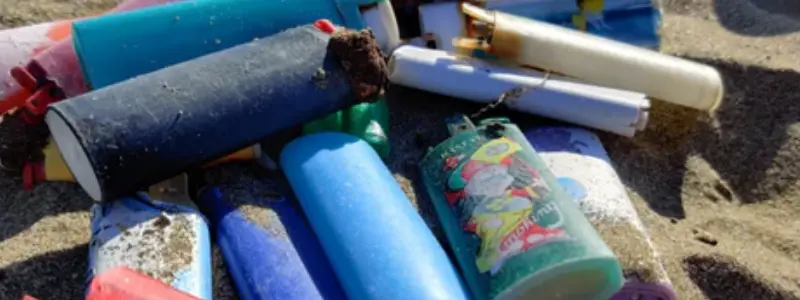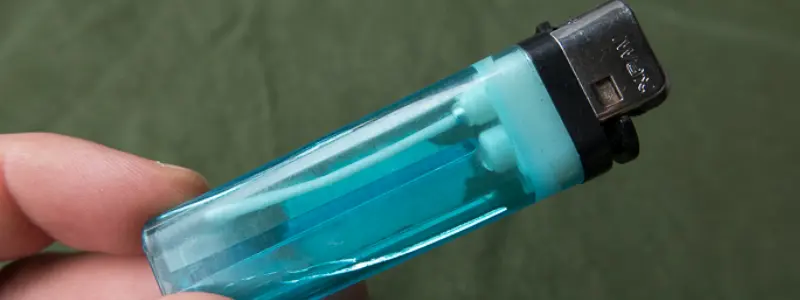Gas lighters are a type of lighter that uses a gas-filled chamber to create a flame. They are typically refillable, and many models feature adjustable flames. Gas lighters are often used in outdoor settings, as they can be lit even in windy conditions.
There are several different types of gas lighters. The most common type is the flint lighter, which uses a piece of flint to create a spark that ignites the gas. Another type is the piezoelectric lighter; this uses a crystal to create a spark. Some lighters use an electronic ignition, while others use a catalytic converter.
Non-disposable lighters are typically made from metal, and feature a replaceable wick and fuel tank. They often have an adjustable flame, and some models have child-safety features. Non-disposable lighters are refillable, and can be used multiple times before needing to be replaced. These are much better options when it comes to choosing a lighter which is friendlier for the environment.
Disposing of Disposable Lighters
Disposable lighters are made from plastic and metal, and usually contain a small amount of fuel. When they are no longer usable, they should be disposed of in a way that does not pollute the environment. Here are a few tips for disposing of disposable lighters:
- Place lighters in a sealed bag or container before disposal.
- Dispose of lighters in the trash can, rather than flushing them down the toilet.
- Check with your local recycling centre to see if they accept disposable lighters for recycling.
- If you must throw away a disposable lighter, make sure to puncture the fuel tank before doing so. This will prevent the lighter from leaking and polluting the environment.
The best solution to help the environment is to buy reusable/refillable lighters. This will lower the amount of toxic chemicals and plastics end up in landfill. It is also a cheaper alternative in the long run.

Lighter Fluid and the Environment
Lighter fluid is a flammable liquid that is often used in gas lighters. It is made from a variety of hydrocarbons, including propane, butane, and isobutane. It can also sometimes be called white gas.
It can also be harmful to the environment if not disposed of properly. Lighter fluid can contaminate soil and water supplies, and can also be toxic to wildlife.
There are several ways to reduce the environmental impact of lighter fluid. One way is to use refillable lighters rather than disposable lighters. Another way is to use alternative fuels such as ethanol or methanol, which are less harmful to the environment than lighter fluid.

Are butane lighters recyclable?
Butane lighters are not typically recyclable, as the material from which they are made cannot be recycled. However, some municipalities may accept butane lighters for recycling. Check with your local recycling centre to see if they accept butane lighters.
Is it safe to throw away old lighters?
Yes, it is safe to throw away old lighters but only when the lighter is empty. Due to the highly flammable nature of the gas within a lighter is the element that makes it unsafe to throw away. When put into landfill and in the right conditions for ignition a lighter can explode.
You should always look to sustainably recycle items rather than just throwing them away in general. So look to recycle where possible. It will depend on the type of lighter; but usually they are made from plastic, metal or a combination of the two. It's possible to recycle these materials. Check with your local recycling provider for their ability to recycle lighters.











